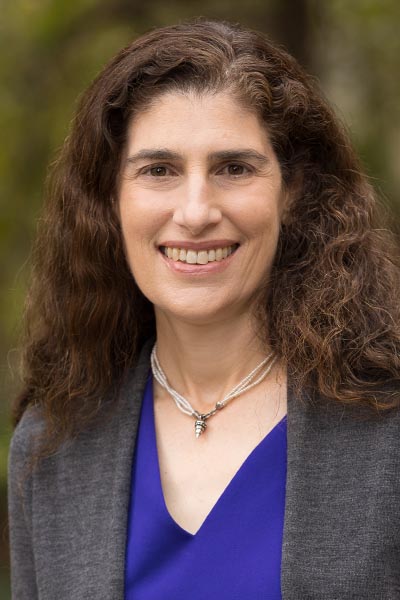
Hilary Coller
Professor and Interim Director of the MBI and MB-IDP PhD Program
email: hcoller@ucla.edu
phone: (310) 825-3483
office: 5145 Terasaki Life Sciences
lab website
Research Interests
Because uncontrolled cell division is so dangerous for an organism, cells must know not only when to divide, but?crucially?when not to. Cell division arrest prevents tumors and maintains the proper form of tissues. Many cells must also retain the ability to start dividing again when conditions are right, e.g., when the organism must grow, or a damaged tissue must be repaired. A cell in such a temporary, non-dividing state is said to be ?quiescent.? Quiescence is a common state for many somatic cells, including fibroblasts, lymphocytes, hematopoietic stem cells, and even dormant tumor cells. Failure to appropriately regulate the transition between quiescence and proliferation underlies several common and lethal disorders, including cancer and chronic wounds. My research is focused on understanding the molecular basis of quiescence using in vitro models, mouse models and human patients.
Selected Publications
Sullivan WJ, Mullen PJ, Schmid EW, Flores A, Momcilovic M, Sharpley MS, Jelinek D, Whiteley AE, Maxwell MB, Wilde BR, Banerjee U, Coller HA, Shackelford DB, Braas D, Ayer DE, de Aguiar VTQ, Lowry WE, Christofk HR, "Extracellular matrix remodeling regulates glucose metabolism through TXNIP destabilization", Cell 175 (1): 117-132 (2018). [link]
Jelinek D., Flores, A., Uebelhoer, M., Pasque, V., Plath, K., Iruela-Arispe, L., Christofk, H.R., Lowry, W.E, and Coller, H.A., "Mapping metabolism: Monitoring lactate dehydrogenase activity directly in tissue", J. Vis. Exp (2018). [link]
Coller, HA, "DNA replication licensing in stem cells: Gatekeeping the commitment to proliferation", J Cell Biol (2018). [link]
Coller, H.A., "MYC sets a tumour-stroma metabolic loop", Nat. Cell Biol 20 (5): 506-507 (2018). [link]
Mitra, M., Lee, H.N. and Coller, H.A., "Determining genome-wide transcript decay rates in proliferating and quiescent human fibroblasts", J. Vis. Exp 131: (2018). [link]
Chiu, A.M., Mitra, M., Boymoushakian, L., and Coller, H.A., "Integrative analysis of the inter-tumoral heterogeneity of triple-negative breast cancer", Scientific Reports (2018). [link]
Coller HA., "Symposium on single cell analysis and genomic approaches, Experimental Biology 2017 Chicago, Illinois, April 23, 2017", Physiol Genomics 49 (9): 491-495 (2017). [link]
Nouvong, A., Ambrus A.M., Zhang, E.R., Hultman, L. and Coller, H.A., "Reactive oxygen species and bacterial biofilms in diabetic wound healing", Physiological Genomics (2016). [link]
Rabinowitz, J. and Coller, H.A., "Partners in the Warburg effect", eLife (2016). [link]
Mitra, M., Johnson, E.L., and Coller, H. A., "Alternative polyadenylation can regulate post-translational membrane localization", Trends in Cell and Molecular Biology 10: 37-47 (2015). [link]
Corney, D., and Coller, H.A., "On form and function: Does chromatin packing regulate the cell cycle?", Physiol Genomics 46 (6): 191-194 (2014).
Coller, H.A., "Is cancer a metabolic disease?", American Journal of Pathology 184 (1): 4-17 (2014).
Evertts, A.G., Wang, X., Manning, A.L., Dyson, N.J., Garcia, B.A., and Coller, H.A., "H4K20 methylation functions in quiescence and chromatin compaction", Molecular Biology of the Cell 24 (19): 3025-3037 (2014).
Jiang P, Singh M, Coller HA., "Computational assessment of the cooperativity between RNA binding proteins and MicroRNAs in Transcript Decay", PLoS Comput Biol 9 (5): (2013). [link]
Coller, H., "Introducing the systems biology of cell state", Physiological Genomics 45 (11): 407-408 (2013).

